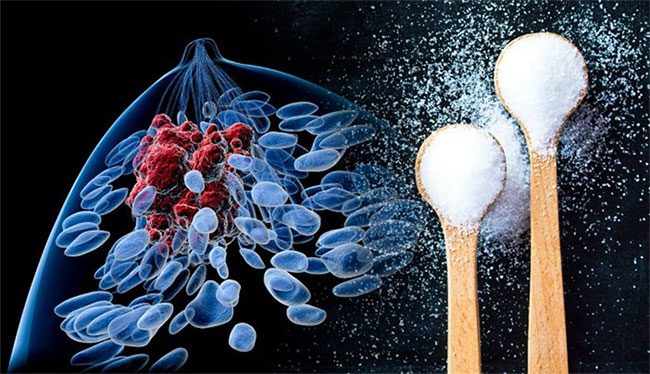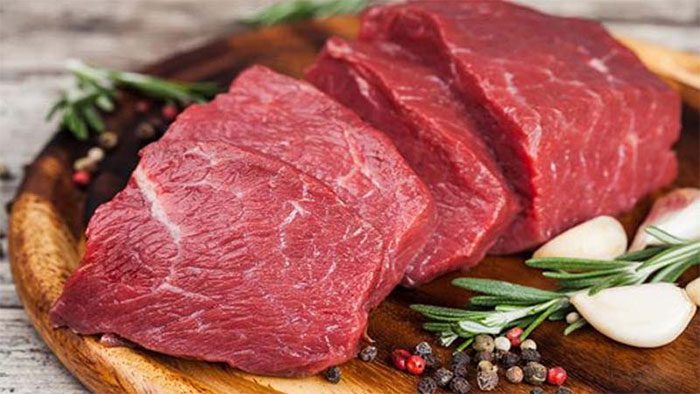When diagnosed with cancer, the question “what to eat – what to avoid” is a daily concern for every patient. However, there is a lot of misleading and inaccurate information that can confuse and cause anxiety for patients and their families.
1. Cancer Patients Should Not Eat Sugar
In daily conversations, we often hear the claim that cancer patients should avoid sugar because this ingredient can accelerate the growth of cancer cells. However, the reality is that sugar does not cause cancer cells to grow faster.
First, we need to understand how sugar functions in the body. The foods we eat daily, such as rice, corn, cassava, and various fruits, contain nutrients called carbohydrates, also known as starch.
All cells, including cancer cells, rely on blood sugar (glucose) for energy production. But consuming more sugar does not mean that cancer cells grow faster, nor does reducing sugar intake cause cancer cells to “grow slower.”
The rapid growth of cancer cells is due to their malignant nature. Furthermore, cancer cells are not related to carbohydrates. While normal body tissues need carbohydrates to carry out their daily functions, completely avoiding them can be extremely dangerous for health.

Sugar does not make tumors grow faster.
2. Cancer Is a Death Sentence
This is one of the most common misconceptions about cancer today. Many people believe that being diagnosed with this disease will lead to a quick and incurable death. Consequently, the willpower of both the patient and their family diminishes, leading to neglect in taking care of mental health and nutrition.
However, the ability of patients to overcome cancer and their life expectancy depend on the type of cancer, the stage of the disease, treatment progression, overall health, and, most importantly, how early the cancer is detected and treated.
Most cancers are treatable. Although it is a dangerous disease, one-third of cancer types can be prevented, one-third can be cured (if detected early), and one-third can extend life (in advanced stages).
A common condition among most cancer patients today is body weakness. This can be a side effect of treatment or due to the patient’s psychological distress, but largely stems from the tumor itself.
Malignant tumors alter the normal metabolism of the body, causing it to expend more energy, destroying body cells and tissues, including muscle mass. Many patients cannot keep up with treatment regimens due to significant weight loss and physical weakness.
At this point, nutrition plays a supportive role to help patients have enough strength to endure rigorous treatment. To ensure proper nutrition, patients need to consume a balanced diet that includes proteins, carbohydrates, fats, vitamins, minerals, and water.
A diet rich in fish, vegetables, low in meat, with added vegetable oils, plenty of water, and regular physical activity will help provide enough nutrients and health to combat cancer. Moreover, it is essential to cater to the patient’s preferences, breaking meals into smaller portions for easier nutrient absorption.
Family members should also encourage patients to engage in physical activity and avoid lying down for prolonged periods so that they can feel comfortable, relax their minds, and avoid excessive worrying, which will help improve treatment outcomes.
3. Cancer Patients Should Not Be Nourished
Some believe that cancer patients should only be nourished during radiation therapy or chemotherapy and that after treatment, they should only eat brown rice and sesame salt to avoid nourishing the tumor in order to make it shrink. These misconceptions negatively affect the treatment process, shorten the patient’s lifespan, and increase the risk of complications, infections, and ultimately lead to death.
We may also hear stories suggesting that cancer patients should not eat balut, as it may accelerate cancer growth or recurrence. However, experts affirm that there is no scientific evidence proving that eating balut or other foods derived from embryos increases the risk of cancer.
Numerous studies indicate that there are many essential nutrients that cancer patients need to ensure adequate nutrition during treatment. These include proteins, carbohydrates, fats, and fruits and vegetables.
4. Cancer Patients Should Completely Avoid Red Meat

The belief that cancer patients should not eat red meat is incorrect.
Many people hold the belief that completely avoiding red meat (from four-legged animals such as buffalo, dog, pig, and cow) will reduce the blood supply (which contains vitamin B12 and iron) to the tumor. The truth is that vitamin B12 and iron are not only found in red meat but also in other animal proteins. Avoiding these foods can lead to protein deficiency, hinder wound healing, reduce the ability to prevent infections, and compromise the immune system.
Cancer patients should not entirely eliminate red meat but can consume it in moderation. Patients can eat less than 500 grams of red meat per week (about 70 grams per day) and should limit processed meats. Those who are still concerned about the cancer risks associated with red meat may consider reducing their intake and substituting it with other protein sources such as eggs, milk, and beans.


















































